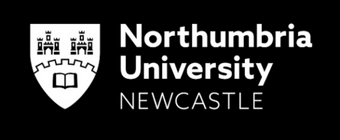States of Nature: Environments and Peoples in the Americas (Optional,20 Credits)
Vamps and Virgins: Gothic Sexualities (Optional,20 Credits)
Sin, Sex, and Violence: Marlowe in Context (Optional,20 Credits)
The Black Atlantic: Literature, Slavery and Race (Optional,20 Credits)
Postwar US Writing (Optional,20 Credits)
Twenty First Century Literature: Writing in the Present (Optional,20 Credits)
From Jane Austen to Austenland: Representing the Regency in Literature and Film (Optional,20 Credits)
Making Books (Optional,20 Credits)
Writing Women: Aphra Behn in Focus (Optional,20 Credits)
Writing and Environment (Optional,20 Credits)
Thieves, Harlots, Pirates, Murderers: Criminal Lives in the Long Eighteenth Century (Optional,20 Credits)
Women, Crime and Subversion in Early Modern Europe (Optional,20 Credits)
Joint Honours Dissertation (Core,40 Credits)
Northern Ireland: The 'Troubles' and the Search for Peace (Optional,20 Credits)
Sex and the City: Urban Life in Eighteenth-Century Britain (Optional,20 Credits)
Mystics, Deviants and Satanists: Unorthodox Thinking in the Age of the Inquisition (Optional,20 Credits)
Law and Order USA: Police, Prisons, and Protest in Modern America (Optional,20 Credits)
The Art of Power: Tudor Court Culture (Optional,20 Credits)
Holocaust Testimony and Cultural Memory (Optional,20 Credits)
Environmental disaster in modern Britain (Optional,20 Credits)
History of Antisemitism (Optional,20 Credits)
The British Women's Suffrage Movement in History and Memory (Optional,20 Credits)
Nicaragua in Revolution, 1979-1990 (Optional,20 Credits)
Russia Between Democracy and Dictatorship: Gorbachev to Putin, 1985-2008 (Optional,20 Credits)
How to Kill a King: Monarchies in Crisis, 1547-1689 (Optional,20 Credits)
Creatures of Empire: an Animal History of British Colonialism (Optional,20 Credits)
Taking the King's Shilling: Ireland and the British Army, 1793-1945 (Optional,20 Credits)
Capitalism and its Others (Optional,20 Credits)
Secret Documents, Oral Traditions: How We Know About African History (Optional,20 Credits)
Academic Language Skills for Humanities and Social Sciences (Core – for International and EU students only,0 Credits)














